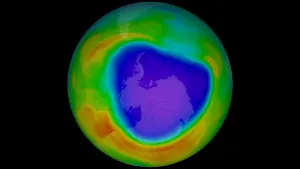Climate Change & Sustainability Facts
What is climate change?
A shift in global or regional climate patterns over a long period of time, typically over several decades. As the average global temperature increases, we call this effect global warming, which is one way to measure climate change.
What is the difference between climate and weather?
Climate is simply the long-term averages of weather, typically over several decades. Weather is the current atmospheric conditions in a specific place and time.
What is the climate crisis, or climate breakdown?
The scope, speed, and severity of the changing climate has prompted some to refer to the situation as a climate crisis, or climate breakdown, due to the significant effects global warming has on the planet, and humanity.
What are the causes of climate change?
Scientists have documented rising atmospheric levels of carbon dioxide and other greenhouse gases, largely produced by burning fossil fuels, that prevent heat from escaping the Earth’s surface. This is known as the greenhouse effect because the heat, trapped by the gases, warms the planet. The rising greenhouse gas concentrations are causing global warming, which in turn is causing climate change.
What do scientists think about climate change?
Science has made an unequivocal case that global warming and climate change are a reality and a serious problem. In fact, 97% of scientists agree that this change in our climate over the past century is extremely likely due to human activities.
What are the impacts of climate change?
Current observable changes to the climate include record high global temperatures; ice melt; drastically altered local precipitation levels; increasingly frequent and powerful weather events; sea-level rise and consequent coastal flooding; worsening ocean acidification and air pollution; droughts and wildfires; and disrupted natural ecosystems.
Is climate change affecting people now?
Up until more recently climate change has been generally communicated as a slowly occurring phenomenon that develops over several decades and an issue that will only affect our grandchildren. We know this not to be true. It is affecting people today.
Who will climate change affect?
The climate breakdown will not just affect people living on our coastlines, everyone will be impacted and those most seriously affected are and will continue to be disadvantaged communities and groups who face socioeconomic inequalities.
How else will the climate breakdown affect us?
The financial impact of the climate breakdown numbers in the trillions of dollars, posing a risk to international economic systems.
What is our best case scenario?
We are already observing the consequences of this serious climate breakdown with human-induced warming of approximately 1°C (likely between 0.8°C and 1.2°C) above pre-industrial levels. But the World Meteorological Organization reported that there is a 50:50 chance we will see that number reach 1.5°C by 2027.
What is a climate emergency?
The declaration of a “climate emergency” signals a government’s acknowledgement of the seriousness of climate change. In most instances, however, it is a non-binding declaration.
What can people do about climate change now?
Stay informed on the latest advances in impactful solutions and share those stories with friend, family, or collegues. You can also come up with an individual or family climate change plan to make sustainable decisions as a consumer and transition to renewable energy wherever possible.Most importantly, you can use your voting and capital power to support the leaders and companies charting the best path towards a liveable future.
What are some climate change solutions?
There are many that already exist today. Solutions to the climate breakdown include: transitioning to renewable energy; innovative transportation ideas; protecting nature; sustainable food production; empowering and respecting the rights and well-being of women and Indigenous communities; novel ways to build; smarter ways to manufacture; and sustainability.
Sources:
Global Warming of 1.5°C. Intergovernmental Panel on Climate Change. https://www.ipcc.ch/sr15. Accessed 16 Jun. 2020.
Hawken, Paul. Drawdown: The Most Comprehensive Plan Ever Proposed to Reverse Global Warming. New York, New York: Penguin Books, 2017.
More News from The Weather Network
Advertisement
Advertisement
Advertisement










